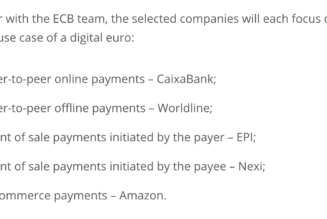
Overseas investors and companies see heightened risks in Kenya following the political chaos that has gripped the country since June, with turmoil threatening to spill over into the economy if there is a flight of foreign capital.
Kenya’s fiscal outlook has darkened since sweeping tax hikes were scrapped in June, with anti-government demonstrations and political turmoil adding to uncertainty that could ultimately weigh on borrowing costs and the shilling. Experts say foreign investors and companies may be right to reconsider their stance as social unrest continues and the government scrambles to raise new funds, raising risks for both holders of government debt and corporates with a Kenyan presence.
“Kenya continues to be a market of choice in the region due to its long-standing stability. However, because of the demonstrations, this has been called into question,” says Magdalene Kariuki, a Nairobi-based associate director at AfricaPractice, a strategic consulting firm that advises investors across the continent.
Holders of Kenya’s sovereign debt are closely watching the fiscal backdrop after President William Ruto rejected tax increases proposed in the 2024 Finance Bill, which would have raised Sh346 billion in additional government revenue.
Giulia Filocca, an analyst at ratings agency S&P Global, warned clients in a note that revenue shortfalls and debt servicing costs could lead to a fiscal deficit of 5 per cent of Kenya’s gross domestic product in 2024/2025 fiscal year, well above the government’s target of 3.3 per cent.
The fiscal and political situation could also complicate negotiations over a $1 billion International Monetary Fund (IMF) disbursement, with strategists in the chief investment office of the Swiss bank, UBS, warning clients against further delays from the Bretton Woods institution.
“In response to public protests, the Kenyan government cancelled planned tax increases in the Finance Bill 2024, which targeted additional fiscal revenues of around two per cent of GDP. Amid social tensions, President Ruto dismissed almost the entire Cabinet. Meanwhile, parliamentary discussions on Kenya’s revised fiscal plans, which envisage a fiscal deficit of 3.6 per cent of GDP, are in focus as well,” the UBS investment office says in a note.
“We believe there is a risk of a delay in the IMF disbursement due to uncertainties about the fiscal and political backdrop, which could increase pressure on Kenya’s bond spreads in the short term. Despite possible spread volatility in the short term, we ultimately expect the IMF and Kenyan authorities to reach a compromise, given their constructive messages following recent developments. Social pressures that stand in the way of fiscal consolidation pose the main risk to the economic programme,” it adds.
Some analysts also predict greater pressure on the Kenyan shilling if the standoff between the government and protesters continues.
“If the protests continue and build in terms of turnout, and if it becomes more difficult for the government, you’ll see upward pressure on Eurobond spreads and you’ll see pressure on the shilling,” says Kevin Daly, investment director for emerging markets at Abrdn, a British firm with more than $650 billion in assets under management, including a Kenyan sovereign debt portfolio.
“Are we through the worst? Maybe not,” he adds.
But Mr Daly is optimistic about Kenya, which he says remains “in a good position”.
The portfolio manager welcomed Dr Ruto’s decision to withdraw the Finance Bill, saying it signalled a response to public concerns, but cautioned that the decision complicates the country’s fiscal situation.
Investors will be watching for action from S&P and Fitch, two of the three major rating agencies, after the third–Moody’s–downgraded Kenya’s government debt to junk status following the failure of the Finance Bill. A further downgrade to junk could trigger a further sell-off in Kenyan bonds, says Mr Daly, as many funds have mandates that prohibit them from holding debt rated so low by multiple agencies.
“You could definitely see another rating downgrade if pressures persist on the fiscal side and if social conditions continue to worsen,” says Mr Daly.
At the heart of the Moody’s downgrade was the question of how the government will fund itself to the tune of $2 billion to Sh3 billion a year, at a time when the Eurobond market may not be an option due to elevated global interest rates. These funding concerns could extend beyond investors in the financial markets to foreign companies in Kenya.
“That the government will go back to the drawing board to find new sources of revenue is a concern,” says Hugh Bower, an Africa specialist at Washington, D.C.-based consultancy Bower Group, which helps companies and investors do business overseas.
“Historically, and not specific to Kenya, foreign companies are easy targets for new tax bills when governments are in a fiscal bind.”
Ms Kariuki sees a possible alternative in which the local private sector bears the brunt of new taxes, while foreign companies benefit from tax breaks to encourage foreign direct investment. This may not be a clear win for foreigners, however, if it reinforces the perception that overseas corporations and bondholders are benefiting from Kenya’s debt problems while local investors and businesses suffer.
More pressing for AfricaPractice’s clients has been the political upheaval since President Ruto sacked much of his cabinet.
Ms Kariuki says this has created uncertainty about the policy direction of most ministries, as a number of her clients were in the middle of engagements with the government when the Cabinet reshuffle began. “It has definitely adversely impacted some companies and decisions on whether they will actually even move forward in Kenya,” she says.
The pain felt by foreign investors and companies is unlikely to be isolated overseas. Capital flight has already been seen in Kenya, where institutional investors have abandoned the Nairobi Securities Exchange in a continuing trend. If investors continue to shy away from Kenya and its assets, the impact could be felt in the real economy — perhaps only adding to the pressure on the government.
Traders dumping Kenyan debt would push up bond yields, which could eventually push up the cost of bank loans and other consumer borrowing. Dwindling investor dollar inflows into Kenya would also add to the headwinds for the shilling, which has already weakened four per cent from a recent peak in early July.
“It’s like a football game, it could go either way,” says Mr Daly. “At this juncture, we don’t see this as a destabilising moment for the country, but we do recognise that it’s a very challenging situation. There will be no shortage of calls to discuss the Kenya story.”









